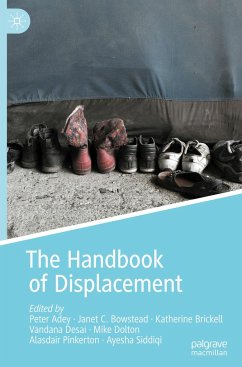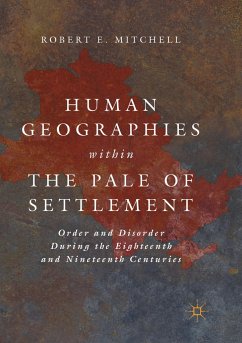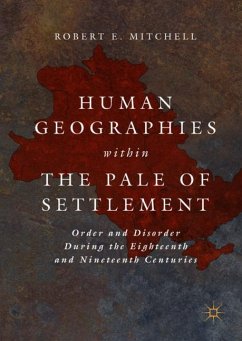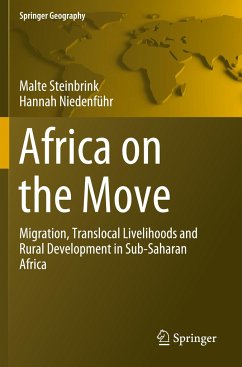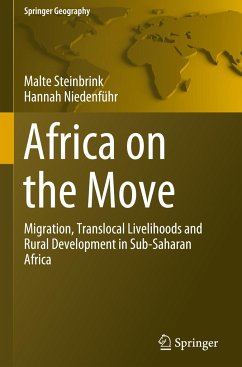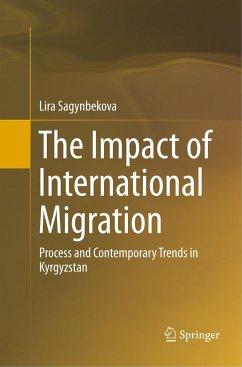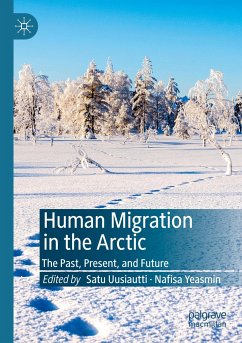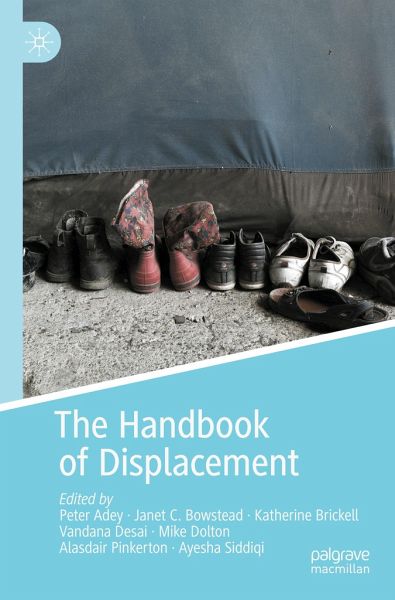
The Handbook of Displacement
Versandkostenfrei!
Versandfertig in 6-10 Tagen
134,99 €
inkl. MwSt.

PAYBACK Punkte
67 °P sammeln!
This Handbook provides the knowledge and tools needed to understand how displacement is lived, governed, and mediated as an unfolding and grounded process bound up in spatial inequities of power and injustice. The handbook ensures, first, that internal displacements and their everyday (re)occurrences are not overlooked; second, it questions 'who counts' by including 'displaced' people who are less obviously identifiable and a clearly circumscribed or categorised group; third, it stresses that while displacement suggests mobility, there are also periods and spaces of enforced stillness that are...
This Handbook provides the knowledge and tools needed to understand how displacement is lived, governed, and mediated as an unfolding and grounded process bound up in spatial inequities of power and injustice. The handbook ensures, first, that internal displacements and their everyday (re)occurrences are not overlooked; second, it questions 'who counts' by including 'displaced' people who are less obviously identifiable and a clearly circumscribed or categorised group; third, it stresses that while displacement suggests mobility, there are also periods and spaces of enforced stillness that are not adequately reflected in the displacement literature; and fourth, it re-evokes and explores the 'place' in displacement by critically interrogating peoples' 'right to place' and the significance of placemaking, unmaking, and remaking in the contemporary world.
The 50-plus chapters are organised across seven themes designed to further develope interdisciplinary study ofthe technologies, journeys, traces, governance, more-than-human, representation, and resisting of displacement. Each of these thematic sections begin with an intervention which spotlights actions to creatively and strategically intervene in displacement. The interventions explore myriad meanings and manifestations of displacement and its contestation from the perspective of displaced people, artists, writers, activists, scholar-activists, and scholars involved in practice-oriented research.
The Handbook will be an essential companion for academics, students, and practitioners committed to forging solidarity, care, and home in an era of displacement.
The 50-plus chapters are organised across seven themes designed to further develope interdisciplinary study ofthe technologies, journeys, traces, governance, more-than-human, representation, and resisting of displacement. Each of these thematic sections begin with an intervention which spotlights actions to creatively and strategically intervene in displacement. The interventions explore myriad meanings and manifestations of displacement and its contestation from the perspective of displaced people, artists, writers, activists, scholar-activists, and scholars involved in practice-oriented research.
The Handbook will be an essential companion for academics, students, and practitioners committed to forging solidarity, care, and home in an era of displacement.



